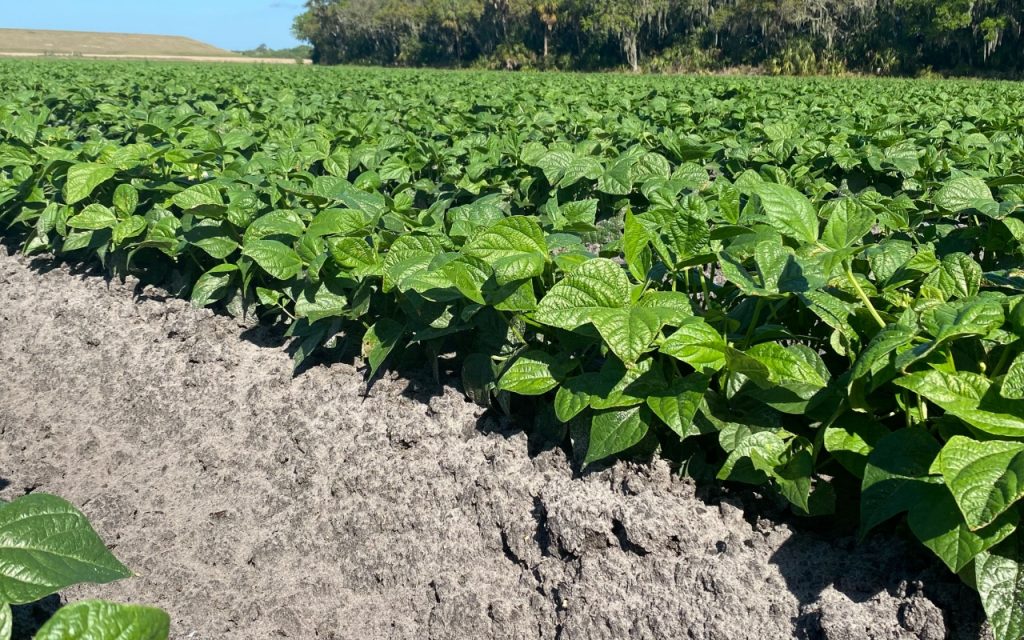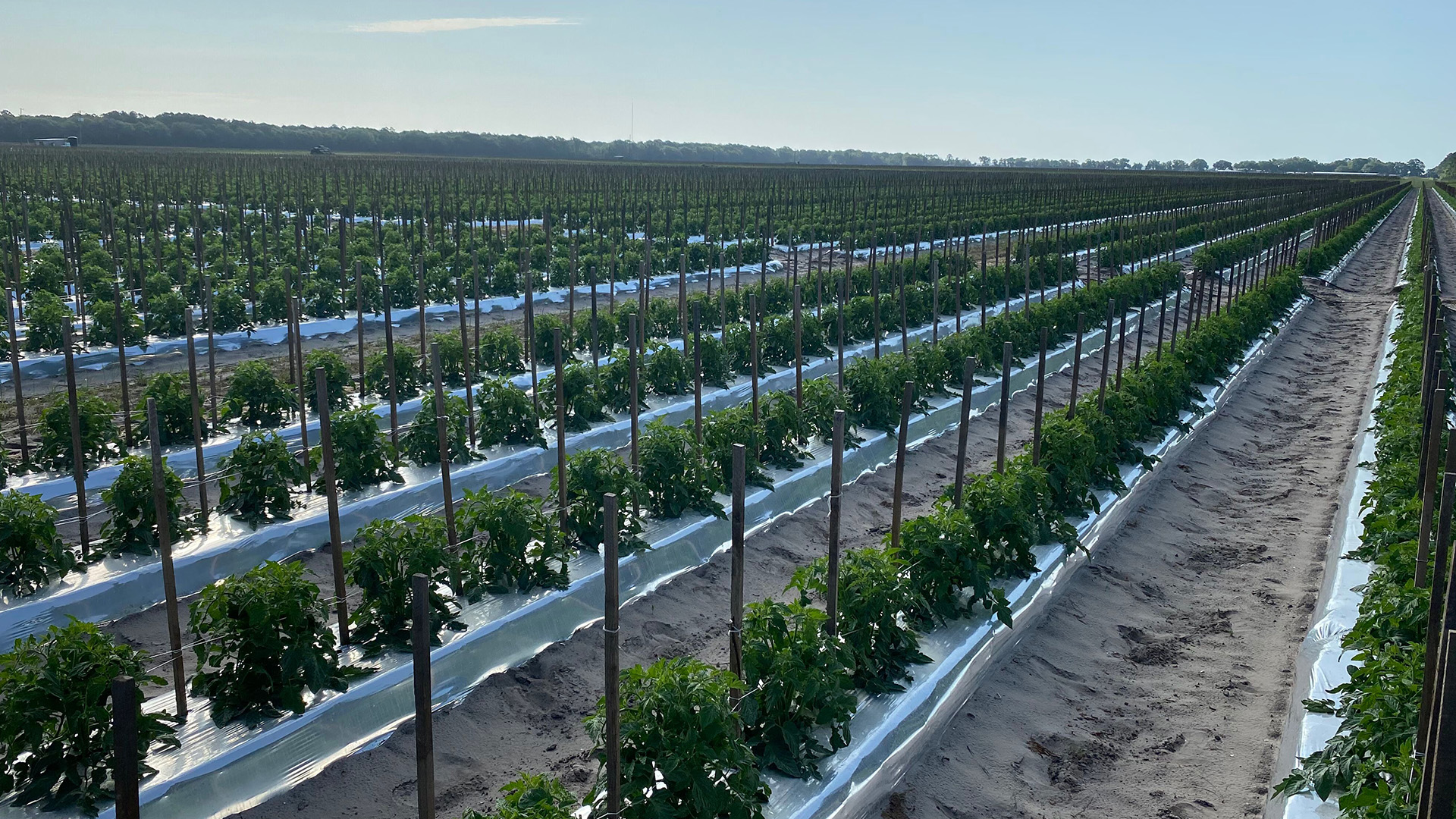There is a lot of talk about sustainability and regeneration in agriculture these days. But what do those terms really mean? If you ask five people, you might get five different definitions. But for Josh Mays, Director of Agronomy for TriEst Ag Group, it all starts with profitability. Mays says “We should all be critical of how farming practices impact the ecosystems around the farm, but we can’t be sustainable without being profitable. There is nothing sustainable about the loss of farms in the United States due to financial instability.”
To put that statement into perspective there are only an estimated 1.89 million farms to feed 332 million people in the United States or 0.5%. According to Yahoo Finance, America has had an average loss of nearly 1.8 million acres of farmland per year since 2015.
He says profitability always has been important, but it is even more so today when there are so many factors that could take valuable farmland out of production. Challenges include competition from urban development, trouble sourcing labor, regulatory burdens, foreign competition impacting markets and the aging demographic of specialty crop growers.
“How do we keep our growers profitable? The economics need to be better for them to farm their land than to sell it for development or other uses,” Mays says. “Our intention at TriEst Ag Group is to help farmers keep farming.”
The company’s core customer base is in plasticulture specialty crops like strawberries, tomatoes and peppers. Other key customers include bare ground sweet potatoes, potatoes, snap beans, sweet corn, and vegetable crops.

GETTING TO KNOW GROWERS
Mays says TriEst Ag Group helps growers key in on profitability by learning about their operations and finding ways that their products and services can be a benefit.
“We go very deep working with growers. That is what my job is all about,” he adds. “We take a step beyond just our products to discover what is the best approach to profitability for each farm. We work with growers to go over fertility programs, to consider variety selection, field selection and testing for what levels of pest problems they have in their soils. We holistically build a program that includes our products where they can help the grower but also are a part of a larger program.
“We are a spoke in the wheel. We want to better understand everything farmers have going on, so we can help them figure out the most economical solution to the challenges they face.”
PORTFOLIO OF SOLUTIONS
TriEst Ag Group has a wide range of products and services that can help growers achieve profitability. The company specializes in soil fumigation, irrigation, crop nutrition, equipment, grafted plants, polytunnels, substrate and associated growing systems.
Soil fumigation with two key products, chloropicrin and 1,3-D (TELONE™), has been foundational in helping growers get their specialty crops off to strong, clean starts. Mays says these products have been studied extensively to maximize crop yield, quality and performance, especially since methyl bromide was phased out.
“These two products have been the subject of years of research and millions of dollars invested by universities and the private sector,” he says. “They are now the foundation of what we do to make up for the loss of methyl bromide. 1,3-D is effective in managing nematodes while chloropicrin manages soil-borne pathogens.
“We’ve seen advancements in plasticulture and tarps to create a better barrier that holds these products in the ground longer at higher concentrations. This allows us to consider rate reductions and achieve more efficacy. And it forced us to be more integrated and innovative in our approach to better manage pests. We’ve been successful in doing that through our collaboration with our grower customers.”
FOCUS ON SOIL HEALTH
Mays says another area of intensive research has been maximizing soil health in fields. The study of the soil microbiome is a hot field now in all of agriculture.
“We are doing a lot of research on how our products interact with the soil microbial system,” Mays says. “We know we must manage nematodes and soil pathogens to produce a healthy crop. We are seeking the best ways to utilize our fumigants to provide the best suppression and have been studying how our fumigants alter the microbiome.”
The research has turned up encouraging results. The use of chloropicrin and 1,3-D has been shown to not ‘sterilize the soil’ as some have said.
“Science shows when you apply these products, you shift the microbial community. You get shifts of certain organisms, and there are others that take their place that are often beneficial organisms. We are learning now how to better utilize that shift. There is an entire new science emerging around the interaction of those microbes and our products, across a wide range of rates and new crops.”
MAXIMIZING ACREAGE
The goal of TriEst Ag Group’s relationships with growers is to help them get more productivity and profitability from each acre of their crops.
“If we can learn new ways to innovate and create more yield on an acre and seek ways to be more efficient and reduce costs where we can, that is key to profitability,” Mays says. “If we were to take our core soil fumigants out of the equation, then you might see specialty crop yields drop by 30%. That will take 30% more acres of land to replace, and all the other inputs needed to grow the crop. That is not sustainable or profitable. We take great pride in working closely with our growers to bring them solutions that keeps that acre of farmland in farming.”
HOW CAN TRIEST AG GROUP HELP YOU?
If you are interested in learning more about TriEst Ag Group’s products and services contact us today.
